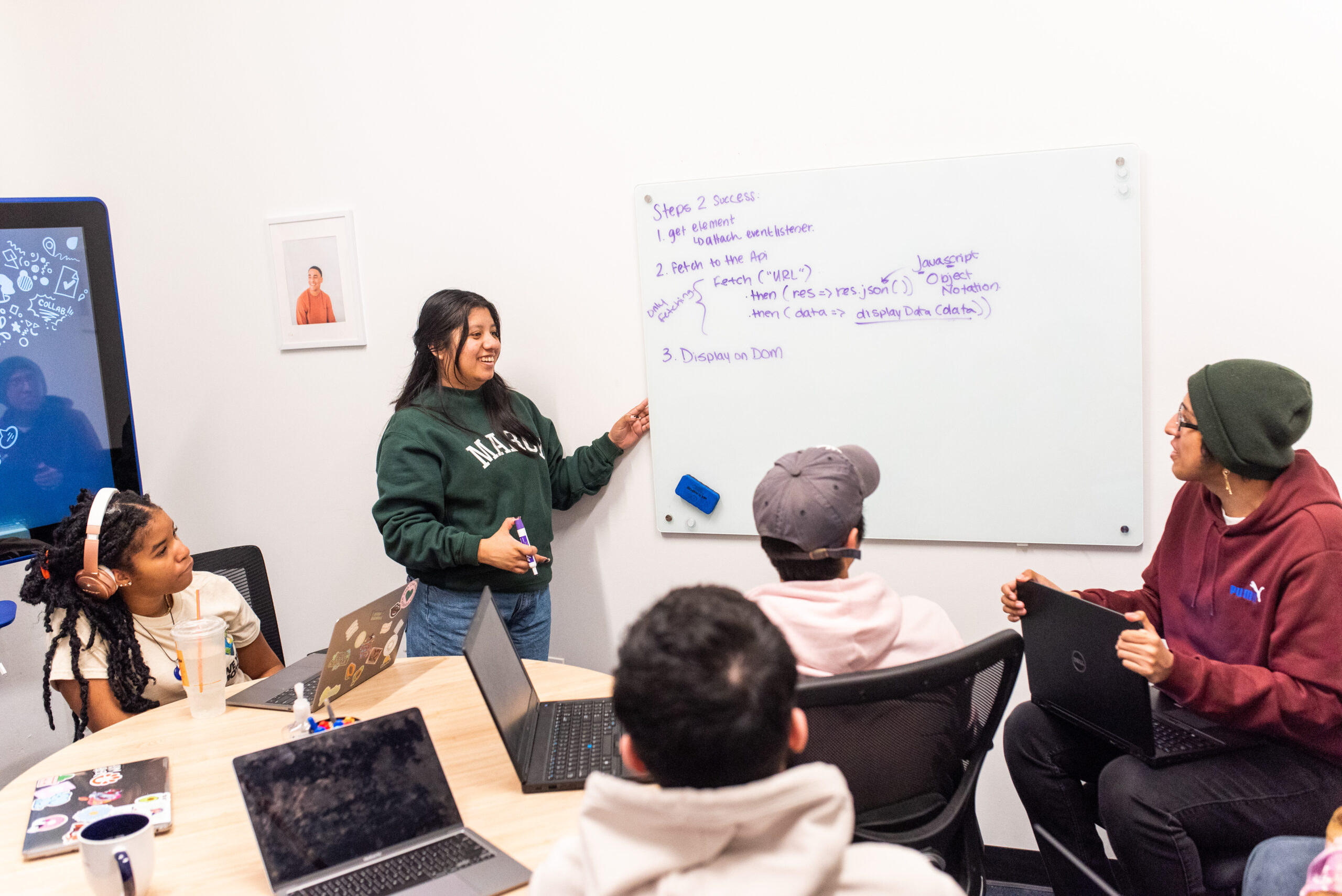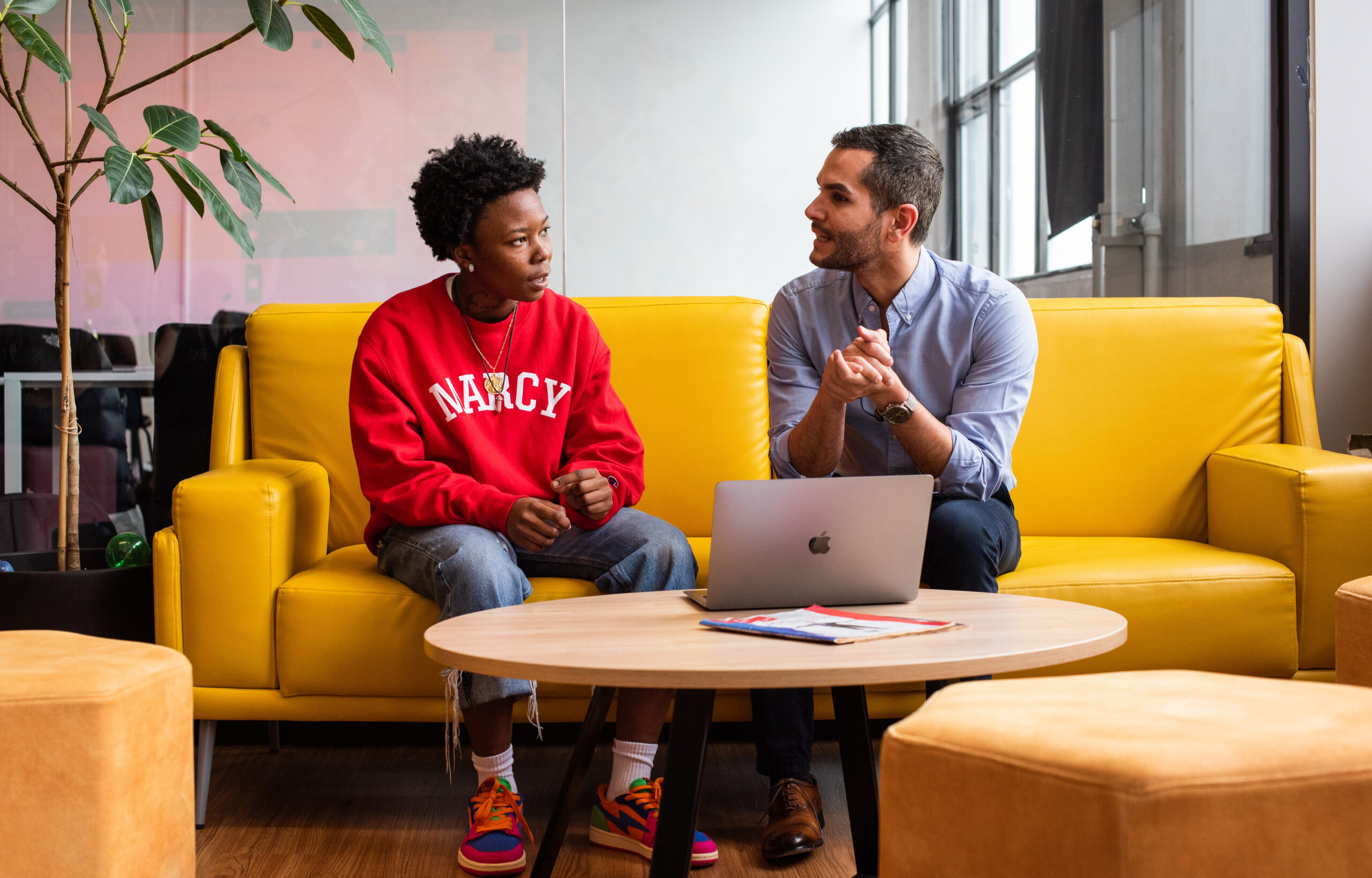NYCETC’s Member Spotlight series – which introduces our readers to the wide variety of workforce programs and services that our members offer across the five boroughs – is shifting to highlight the ways in which organizations have shifted their services to best support their clients and communities during the COVID pandemic and within the post-COVID economy. This week we focus on Nontraditional Employment for Women (NEW).
Alexandria Defaria, NEW Graduate and Plumber with Local 1, is one of many NEW tradeswomen building hospitals in New York City to meet the demand of COVID-19 cases. With support from NEW’s employment services during COVID-19, Alexandria was able to maintain employment and give back to her community by installing gas piping for ventilators that are supporting the lives of thousands of New Yorkers affected by COVID-19. “The most recent project I’ve been working on is North Central Bronx Hospital. We’re doing medical gas piping right now. It’s for the ventilators. I do feel like I’m a part of something greater than myself,” said Alexandria Defaria. See Alexandria’s story on YouTube alongside those of many NEW graduates.
Nontraditional Employment for Women (NEW) helps women achieve economic independence by providing training, placement, and social services, with a keen focus on serving low-income women, girls, transgender, and nonbinary individuals entering the building and construction trades in the New York City metropolitan area. These career paths have been historically less accessible to women yet offer the opportunity to fundamentally transform one’s income and wealth. 85 percent of NEW’s students identify as minorities, over 80 percent of clients come from low-income backgrounds and are working minimum wage jobs, and 75 percent are receiving some form of public assistance. With placement wages averaging $19 per hour, NEW graduates gain fulfilling careers, comprehensive benefits, and robust wages.
NEW’s long-term impact on the New York City economy is undeniable: over the last 40 years, NEW has increased the number of women represented in trade careers in New York City from two to seven percent, with many apprenticeships approaching or exceeding 15 percent women. In the last ten years alone, NEW has placed women in over 3,000 industry careers. NEW graduates are working as carpenters, electricians, ironworkers, laborers, plumbers, and operating engineers as a result of unique partnerships between NEW, its Board of Directors, its Ambassador Council, the construction unions, and New York’s real estate industry.
Through its “NEW Conversation” series, the organization has become active in organizing stakeholders in the construction industry – from real estate developers and contractors to unions and training providers – to critically consider their role in the post-COVID recovery process and efforts to ensure that the recovery is inclusive and equitable. So far the series has held two events – Continuing after the PAUSE (June 11) and Building Back NYC with Inclusivity (September 15) – during which NEW’s panelists discussed diversity, equity, and inclusion in the building and construction trades in New York City, including the opportunities for advancing diversity in leadership, and urgency for gender and racial equity in our industry. Through critical conversations about COVID-19, equitable and inclusive recovery models, and diversity and inclusion, NEW’s NEW Conversations have facilitated important dialog and facilitated networking and community for industry leaders, as well as NEW students and graduates, during exceptionally difficult and isolated times. NEW will also be part of tomorrow’s JobsFirstNYC event Building an Inclusive Green Economy with Deputy Mayor Philip J. Thompson and Doreen M. Harris, Acting President & CEO of New York State Energy Research and Development Authority (NYSERDA).
In the face of a global pandemic and economic downturn, NEW’s support of its students and graduates is more important now than ever. Since transitioning to a work from home model, NEW has successfully supported 500 women, trans and nonbinary individuals to engage in NEW’s online training and access support services remotely. To supplement the typical opportunities that NEW offers in the building trades apprenticeships, the organization has provided for its graduates by securing opportunities to work in utilities, building management, fabrication and hands-on engineering. For those graduates who face childcare and other barriers to full-time work exacerbated by the pandemic, NEW has been connecting those graduates with high-quality, industry-relevant training such as OSHA-30.
Its remote changes include curriculum adaptation to an online learning format, virtual information sessions, conducting comprehensive intakes with prospective students, and daily check ins with graduates to determine the status of their employment, how it has been affected by COVID-19, and track their experiences in the field during these times. As the city moves to reopen various parts of its economy, NEW is establishing protocols to shift to a hybrid training program that is held 65 percent online and 35 percent in person, in shop instruction. These hours of shop instruction are critical to the exposure and success of NEW’s students interested in a career in the trades, and we are determined to provide the best possible services to our students while maintaining a healthy and safe learning environment.



